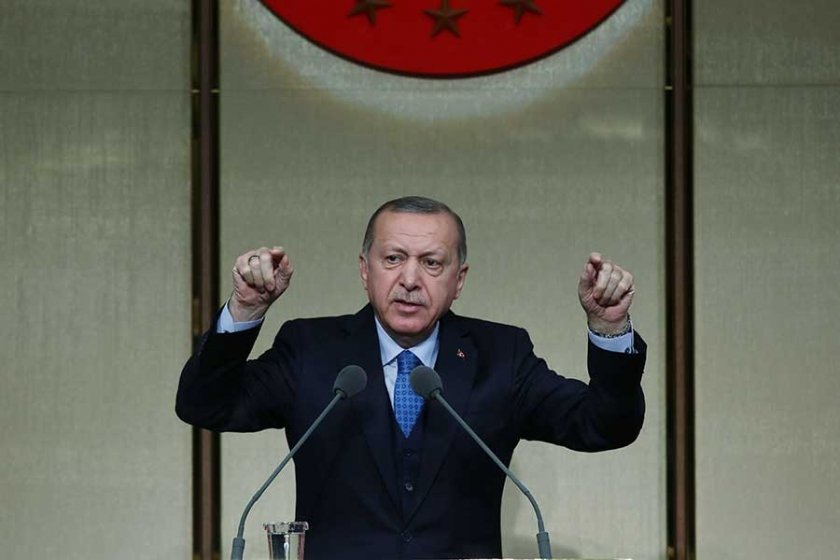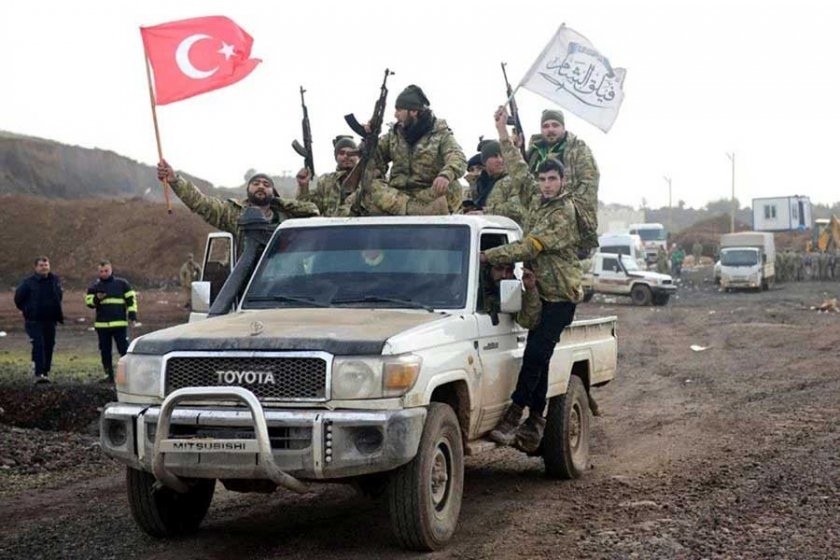Looking ahead from 2018, it appears that Turkey’s neo-Ottoman Syrian policy involving two ‘red lines’ will have a very hard time of it in 2019.
Apart from deeply embroiling Turkey in “Syrian crisis,” Trump’s announcement in the final days of 2018 that he would withdraw US troops has turned 2019 into a year of “dealing new hands” in the efforts to “find a solution to the Syrian crisis.”
With Trump’s move “muddying” the future of Turkey’s military operation targeting Manbij or the “east of the Euphrates,” by the same token it comes as a game changer for the Turkey-Russia-Iran alliance.
Indeed, with uncertainty increasing over the commencement of the US troop withdrawal and Turkey’s military operation targeting Manbij or the “east of the Euphrates,” announcements were circulated by the Syrian Democratic Forces that “regime forces” will enter Manbij and certain towns in Rojava.
WHAT IS CERTAIN WITHIN THE UNCERTAINTY
On the heels of the Syrian Democratic Forces’ announcement that the Syrian army had brought Manbij under Damascus’s control, Russia openly and successively announced that the Syrian army had entered Manbij. With the US refuting this, Turkey, for its part, restricted itself to saying through its President’s mouth that “uncertainty” prevailed.
No “certainty” was brought to bear on this uncertainty from Turkey’s standpoint following the going and coming of Turkey’s “top-notch official delegation” to Russia. This “situation of uncertainty” continues.
However, it has in the meantime become abundantly apparent that Russia opposes Turkey’s intervention in Manbij. Russia has openly stated that the US presence in Syria is illegitimate (a force not invited by the Syrian government) and so it greets its withdrawal from Syria with satisfaction. By the same token, this certainly amounts to it telling Turkey, which maintains a military force in Syria despite the Syrian government not having invited it, that its presence in Syria is illegitimate, too. Even if Turkey has ignored this, Russia’s announcement comes as an important pointer as to the state of play in the Syrian crisis.
VERY TRICKY FOR TURKEY TO INTERVENE MILITARILY IN MANBIJ
Turkey’s other partner at Astana, Iran, has announced that it, in common with Russia, “regards” the ceding of Manbij to Syrian forces to be “a requirement of Syria’s territorial integrity.”
These circumstances make it very tricky for Turkey to intervene militarily in Manbij. It was for this reason that a top-notch delegation consisting of Turkey’s Defence Minister Akar, Foreign Minister Çavuşoğlu and Presidential Spokesman Kalın (this is as top-notch as a delegation gets without Erdoğan) was sent to Moscow.
However, the statement made following these high-level talks suggested all matters had been discussed but was absolutely silent on Turkey’s potential operations targeting Manbij and the “east of the Euphrates.” This of necessity invites the conclusion that a meeting of minds eluded Turkey and Russia on this point.
Assessing all these developments in conjunction, we can reach the following conclusions:
1-) It appears that, in withdrawing his troops from Syria, Trump, while on the one hand having transferred his costs and the fight against Islamist terrorist organizations in the region to his allies caught up in the region’s realities (the fight against ISIL to Turkey and the expenses to Bahrain, Saudi Arabia, etc.), is on the other harbouring the aim of splintering the Iran-Turkey-Russia alliance. At least Trump and those who point out this path to him are hoping for such a result!
BOTH “RED LINES” FACE HUGE DIFFICULTIES
2-) With this course taken by the US forcing the Syrian Democratic Forces to reach understanding with Assad, it has also unleashed factors that will bring Turkey up against the Russia-Syria-Iran alliance. This lends weight to the thesis, articulated ever since Turkey’s Syria policy became bound by the “two red lines” of “regarding the Syrian regime as being illegitimate” and “declaring the PYD-YPG to be terrorists,” that this policy by Turkey would force the Kurdish forces to come to an understanding with the Syrian regime. The US troop withdrawal and Turkey’s “east of Euphrates” operational endeavours would appear to have accelerated this process.
3-) Given the opening by the United Arab Emirates and Bahrain of embassies in Damascus, al-Bashir’s Damascus visit and the realisation that Egypt and Saudi Arabia will follow the Gulf countries, it has already become apparent that one of the “two red lines” in Turkey’s Syrian policy (regarding the Syrian regime as being illegitimate) will well and truly lose all meaning.
4-) It is calling a spade a spade to say that the “Syrian regime” reaching an understanding in one form or another with the Kurdish forces or granting them a degree of “autonomy” will also rob the “second red line” of Turkey’s Syrian policy of its foundation. Even if it is impossible to put a precise time on this, the signs are that the path taken in Syria will inevitably lead to such a result in the “medium term.”
Looking ahead from 2018, it appears that Turkey’s neo-Ottoman Syrian policy involving two “red lines” will have a very hard time of it in 2019. Of course, if it does not collapse in full!
Article by Ihsan Caralan
Translated by Tim Drayton

